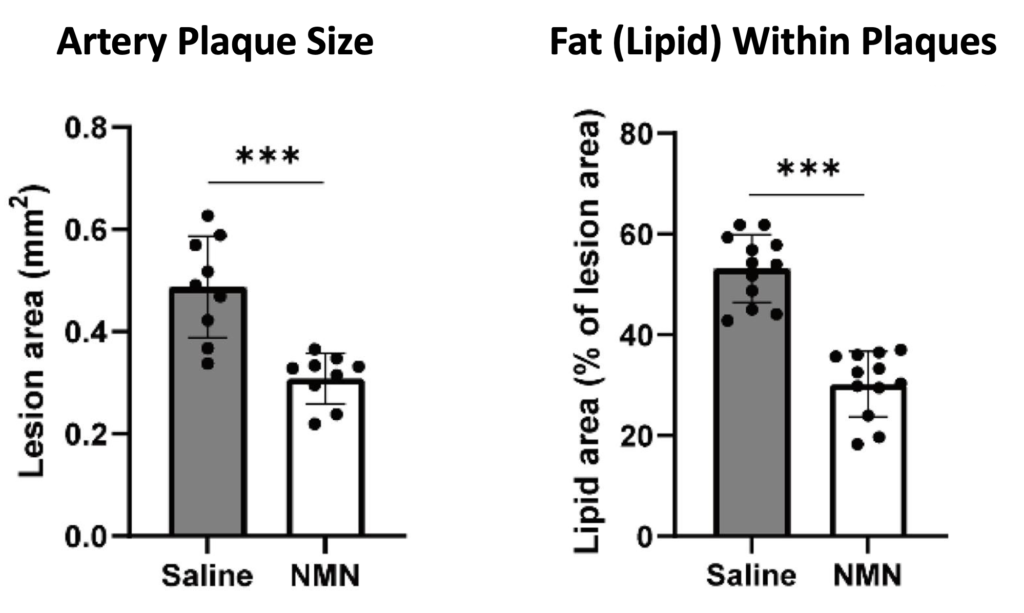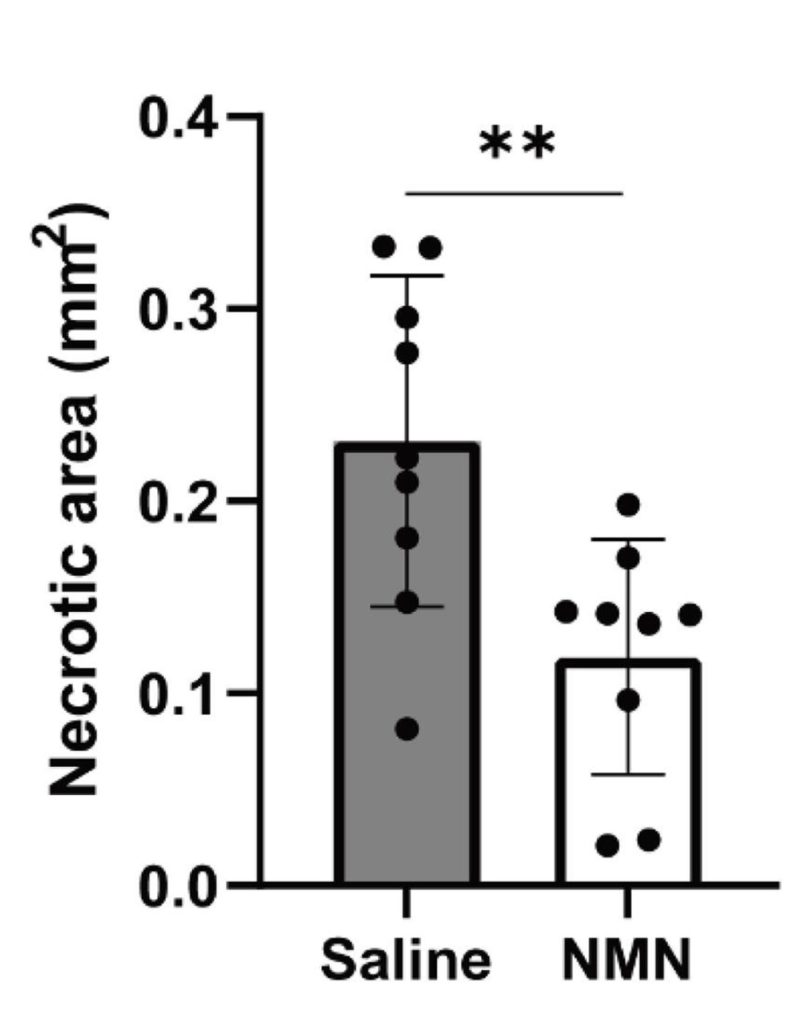NMN Prevents Clogged Arteries and Protects Against Plaque Bursting, A New Study Shows
NMN prevents artery plaque buildup and protects against plaque bursting in a mouse model for atherosclerosis — the deadliest age-related condition.
Highlights:
- NMN prevents artery plaque buildup and the fat deposits within, suggesting the suppression of atherosclerosis.
- NMN protects against plaque bursting by reducing the accumulation of dead cells and fats within artery plaques.
Researchers have found that NMN not only hinders the genesis of atherosclerosis — artery plaque buildup — but also protects against the plaque bursting associated with atherosclerosis. This discovery, found in mice, has implications for NMN supplements potentially mitigating the genesis of atherosclerosis in humans.
Surprisingly, the origins of atherosclerosis remain unclear. This is despite the fact that atherosclerosis accounts for over 300,000,000 instances of cardiovascular disease across the globe. Moreover, cardiovascular disease remains the number one leading cause of death worldwide with atherosclerosis-related deaths reaching 15,000,000 in 2019.
What we do know is that the formation of atherosclerotic plaques involves inflammation and oxidative stress — hallmarks of aging that NMN has previously been shown to alleviate. For this reason, researchers from the China Agricultural University have tested whether NMN supplementation can impede or prevent atherosclerosis.
“This study demonstrated that NMN may exert [an] anti-atherosclerotic effect by reducing inflammation and oxidative stress, providing a potential therapeutic strategy for atherosclerosis,” said the researchers, who recently reported their findings in the Journal of Functional Foods in an article called “Nicotinamide mononucleotide protects against high-fat-diet-induced atherosclerosis in mice and dampens aortic inflammation and oxidative stress.”
Previous research also indicates NMN’s potential in mitigating certain aspects of cardiovascular aging. For instance, high blood pressure and artery stiffness, key contributors to atherosclerosis, have been shown to decrease following NMN supplementation in overweight individuals. Additionally, in mouse models, NMN has been effective in improving heart function and safeguarding against blood flow and oxygen supply restrictions caused by atherosclerosis. These collective findings point to NMN’s promising role in combating cardiovascular diseases, particularly among overweight populations.
First Study to Test NMN on a Popular Atherosclerosis Animal Model
The current study is the first to test NMN on an animal model that develops atherosclerosis. A well-established method for generating such models is through genetic mutations that lead to elevated blood cholesterol levels. Just 10 weeks of feeding mice with high-cholesterol a high-fat diet (HFD) inevitably recapitulates the artery plaque buildup (atherosclerosis) seen in humans.
To test NMN’s effects on atherosclerosis model mice, the China Agricultural University researchers injected 500 mg/kg/day of NMN into their abdominal cavity for 8 weeks (6 days per week). As a result, artery plaque formation was reduced by a staggering 38% compared to mice injected with only saline (salt and water). Additionally, the fat deposition within the plaques decreased by a remarkable 43%.
“Based on these results, the data demonstrated that NMN effectively suppressed atherosclerosis,” the researchers said.

(Wang et al., 2024 | Journal of Functional Foods) NMN Helps Unclog Arteries. Artery plaque size (Lesion area, left) and the fat within the plaques (Lipid area, right) were lower in atherosclerosis mice treated with NMN compared to atherosclerosis mice treated with saline.
When artery plaques are destabilized, they can rupture, which can trigger a heart attack, stroke, or sudden death. A common feature of artery plaques is a necrotic core — an area consisting mainly of fat and debris from dead cells that burst open due to a process called necrotic cell death. Destabilized plaques that are prone to bursting contain a particularly large necrotic core. Thus, to determine if NMN could protect against plaque bursting, the researchers measured necrotic core size. They found that NMN reduced necrotic core size in atherosclerosis mice, suggesting NMN protects against the bursting of arterial plaques.

(Wang et al., 2024 | Journal of Functional Foods) NMN Protects Against Plaque Rupture. Necrotic core size (Necrotic area), which if large enough can lead to rupturing of artery plaques, was lower in atherosclerosis mice treated with NMN compared to those treated with saline.
This research from the China Agricultural University presents compelling evidence that NMN, a precursor to NAD+, may play a significant role in combating atherosclerosis. Mechanistically, NAD+ is crucial for energy metabolism and maintaining mitochondrial health, offering a possible explanation for NMN’s protective effects against the progression of atherosclerosis, including the risk of arterial plaque rupture.
Model: 6-week-old male ApoE-/- mice
Dosage: Intraperitoneal (I.P.) injection of 500 mg/kg/day of NMN for 8 weeks (6 days a week)

